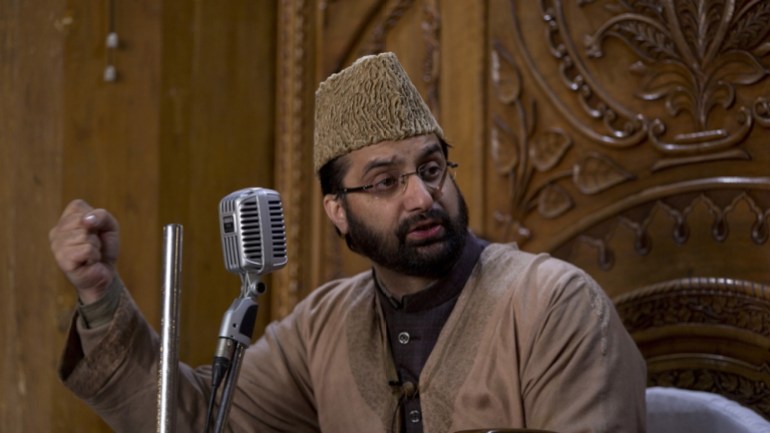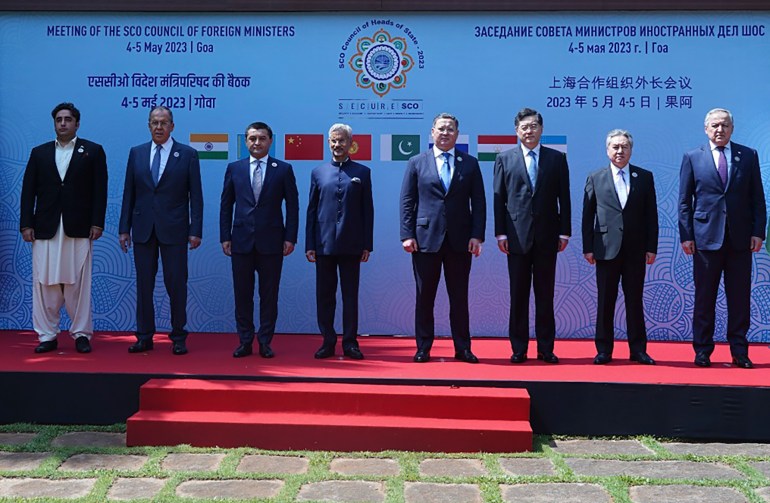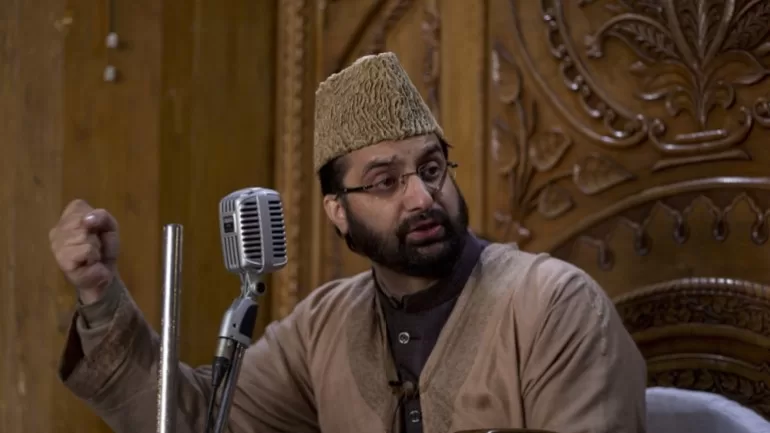Hopes for diplomatic breakthrough dashed as prominent Kashmir leader urges India and Pakistan to ‘break the ice and engage constructively’.
India’s foreign minister has ruled out discussing bilateral relations with rival Pakistan as he is scheduled to embark on his first trip to the neighbouring country in nearly a decade to attend the 2024 Shanghai Cooperation Organisation (SCO) summit.
Subrahmanyam Jaishankar told reporters on Saturday that he expects “a lot of media interest” in the possibility of speaking to his Pakistani counterpart at the two-day summit about the two countries’ relations, which remain in a deep freeze since a deadly armed attack in Indian-administered Kashmir in 2019.
“But I do want to say it will be for a multilateral event. I am not going there to discuss India-Pakistan relations,” he added.
“I am going there to be a good member of the SCO, but since I am a courteous and civil person, I will behave myself accordingly.”
The Indian Ministry of External Affairs confirmed on Friday that Jaishankar would attend the summit from October 15 to 16, which India chaired last year, but did not say if he would meet any Pakistani leaders on the sidelines.

Earlier this year, the foreign minister said India would want to find “a solution to the issue of years-old cross-border terrorism”, adding it cannot be the “policy of a good neighbour”.
India has accused Pakistan of backing armed rebels in Kashmir – a charge Islamabad has denied. Pakistan has insisted it only provides political and moral backing to what it calls Kashmir’s “freedom fighters”.
Pakistan downgraded its diplomatic relations with India and suspended bilateral trade after Hindu nationalist Prime Minister Narendra Modi stripped the limited autonomy granted to Kashmir in August 2019 as part of his aim to integrate the disputed region into India. India and Pakistan both claim Kashmir in its entirety, but have governed only parts of it since independence from British colonial rule.
‘Opportunity to break the ice’
Meanwhile, Mirwaiz Umar Farooq, who heads the All Party Hurriyat Conference (APHC), said on Saturday that India and Pakistan have “a real opportunity” at the SCO summit “to break the ice and engage constructively”.
“Despite increased challenges, the resolve for peaceful resolution of conflict remains stronger than ever. Generations of Kashmiris have been consumed by the uncertainty. We want an end to it, a fair closure,” Farooq said in his first post on X in five years.
Farooq has been under house arrest for most of the past five years along with many other pro-freedom Kashmiri leaders. The APHC campaigns for either the region’s merger with Muslim-majority Pakistan or the creation of an independent nation out of the Himalayan territory.

The SCO is a group of 10 countries, including India, Pakistan, Uzbekistan, Kazakhstan, Tajikistan, and Kyrgyzstan, established by Russia and China to deepen ties with Central Asian states.
Michael Kugelman, director of the South Asia Institute at the Washington-based Wilson Center, told the French news agency AFP that India’s decision to attend the meeting in Pakistan was “undoubtedly motivated” more by its SCO commitment “[than] to a desire to move the needle forward on relations with Pakistan”.
In 2015, Indian Prime Minister Narendra Modi made a surprise visit to Pakistan, prompting hopes that relations could improve.
However, the opposite happened in 2019 after Modi removed the constitutional guarantees given to Kashmir and downgraded the region to a federally run territory. Kashmiris have said the move denied them their democratic rights to elect their own representatives.
Elections for the state assembly concluded earlier this week, but analysts said the new assembly will have little power as the New Delhi-appointed lieutenant governor calls all the shots.
